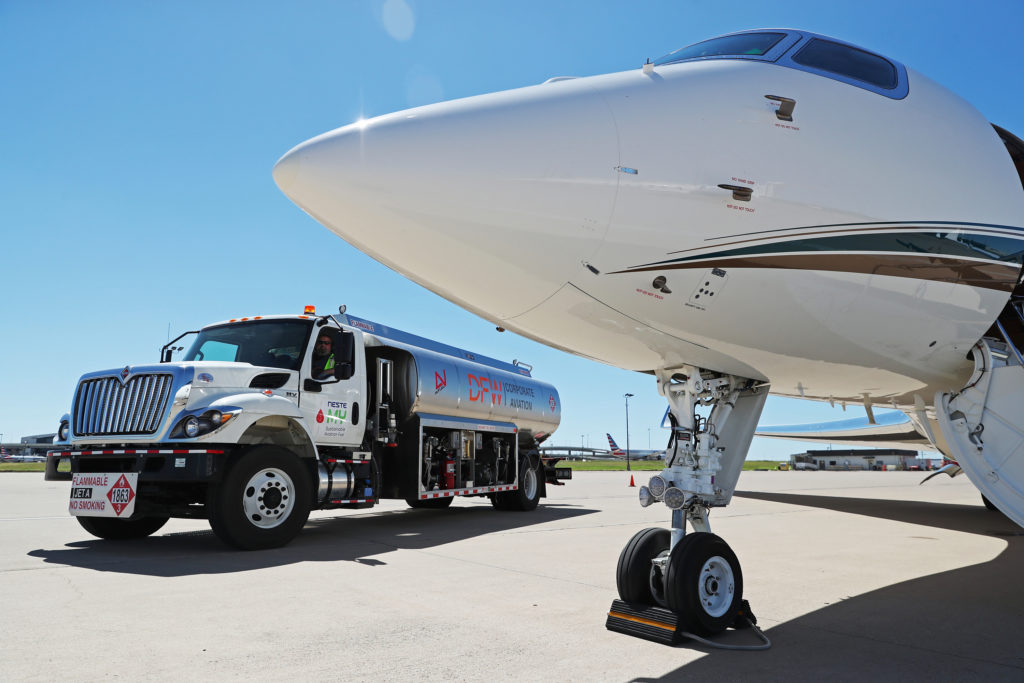Estimated reading time 6 minutes, 53 seconds.
A coalition of Canadian airlines, airports, original equipment manufacturers and other industry leaders is pushing for “bold action” from the Trudeau government to create incentives for domestic sustainable aviation fuel (SAF) production this year.
The coalition presented a joint letter to finance minister Chrystia Freeland as part of consultations for the 2024 federal budget, which is to be presented in the House of Commons April 16.

Aviation stakeholders are asking for measures to ensure Canada produces SAF at home, rather than relying on imports from the United States and other countries. The industry sees SAF as the most important plank in a plan to reach net-zero emissions by 2050.
They also see SAF as a major economic opportunity for Canada as a whole.
“Without a shared commitment by government and industry to lead, Canada will miss the benefits of a net-zero industry that will be a cornerstone of sustainable aviation,” the coalition said.
“Already, the lack of bold, deliberate national sustainable aviation policies is driving investment to other countries, and in the process putting our 2050 net-zero at risk.”
Canada lags behind the United States, which has incentives for up to $1.75 per gallon of SAF produced, combined with additional state-level measures, the coalition said.
“Now is the time for Canada to step up with its own incentive program and policy regime for SAF,” they added, saying Canada has “significant potential and important natural and geographical advantages” over other countries.
“We have varied sustainable biomass in abundance, unparalleled experience in resource development and renewable energy, and most importantly, stakeholders across the entire value chain ready to act and be leaders in this front.”
SAF can be made from various feedstocks, including forestry products, municipal waste, and agricultural products. It’s estimated SAF can reduce lifecycle carbon emissions by up to 80 per cent in comparison to conventional jet fuel.
The coalition is asking Freeland to adopt recommendations from the Canadian Council for Sustainable Aviation Fuels, including a 50 per cent refundable tax credit for SAF production facilities, as well as a production tax credit (PTC) similar to the U.S.
In the absence of a PTC, stakeholders are asking for revenue certainty mechanism that would support SAF production, “boost its uptake,” and provide greater certainty for airlines and SAF producers.
They also are seeking a “book and claim” mechanism that would allow aviation companies to claim credits for any flight with SAF across their fleets, to offset flights with jet fuel when SAF is not available.
“Air travel is essential to keep Canadians connected to their loved ones, to business opportunities, and to the world,” the consortium said. “But for this vital industry to adapt to the realities of climate change and decarbonization, SAF, and federal SAF incentives, are critical.”
There have been few hints about the government’s intentions on this issue, but the House of Commons Finance Committee has recommended an “actionable plan” to create an SAF fuel industry in Canada.
This recommendation is one of more than 350 the government will consider. In its 2023 fall economic statement, Freeland projected a budget deficit of $38.4 billion for the 2024-25 fiscal year amid attempts to cut spending.
The national debt has more than doubled to approximately $1.2 trillion over the last few years, thanks in part to ballooning deficits at the height of the Covid-19 pandemic. Canada is also facing pressure to increase its defence and infrastructure spending and has agreed to a national pharmacare program as part of its coalition with the NDP.
Freelan has signaled housing, affordability and job creation are among the government’s key priorities.
“Our economic plan is about building more homes faster, making life more affordable and creating more good jobs,” Freeland told reporters.
“This plan will unlock pathways to a good middle class life for the next generation — because Canada is stronger when everyone has an equal chance to succeed.”
Still, curbing carbon emissions to stifle the effects of climate change remains a priority — and a source of pressure internationally and at home. Aviation acknowledges it has a role to play.
“The Canadian aviation, aerospace and SAF ecosystem stakeholders want to work with the federal government to create economic opportunities that will contribute towards building a decarbonized country,” the industry coalition said.
“This starts with implementing a federal policy framework to build a domestic SAF supply chain that will help achieve lower GHG [greenhouse gas] emissions in the aviation industry.”








